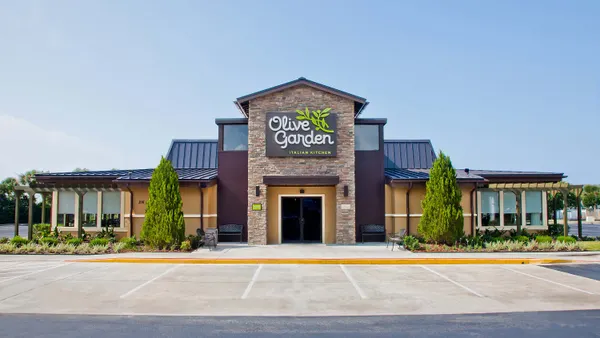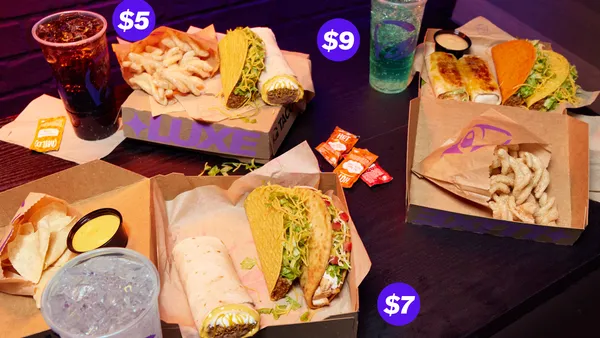Dive Brief:
- Square is adding 10 new features that use generative artificial intelligence, including a menu generator and a website copy generator, the company said Wednesday. The tools are included in existing product subscriptions, Square wrote in an email to Restaurant Dive.
- Square said the features could “automate operations, speed up workflows, and regain time.” The company is using third-party AI tech including “OpenAI models like GPT-3, GPT 3.5, and GPT-4,” to power these tools.
- Restaurants and restaurant tech companies are embracing generative AI to automate, or at least expedite, some tasks. Domino’s recently partnered with Microsoft to speed up managerial tasks with AzureOpenAI, for example.
Dive Insight:
Square said its AI tools will save restaurant operators time and labor costs by generating consumer-facing text and images based on inputs from businesses.
The promotional material for Square’s generative AI tools show it generating a menu, complete with prices and ingredients, a tool Square said was primarily useful for “restaurant sellers who don’t have or aren’t ready to upload a menu during onboarding.”
The features also include a photo manipulator that generates backgrounds, shading and other effects, allowing businesses to create promotional material based on a decontextualized photograph of a product.
Square also highlighted tools that can generate communications with employees, generate website copy, draft personalized email promotions, and suggest replies in direct communication with customers.
In addition to its customer- and employee-facing generative tools, Square announced an auto-generated “starter library [that] suggests items for sellers to adopt based on insights about their business,” and an AI tool to import and integrate bookings.
The last category of tools Square discussed are those intended to aid operations: a kitchen display system that “can auto-assign menu items to kitchen categories and station screens to create smooth workflows for back-of-house staff” and auto-written product descriptions. While menu categories are a standard feature of KDSs, Square’s tool auto-categorizes new menu items.
AI-based text generators have well-documented issues producing accurate writing, which could be an issue for restaurants that need to provide accurate information on menu items given the risks allergens pose to consumers and the risks inaccurate or deceptive marketing poses to business.
OpenAI has faced lawsuits from writers over its use of texts to train its GPT chatbots, and tests of the models’ competence over time have shown instability in the answers generated, including the possibility that answer accuracy can actually degenerate, according to Scientific American. In a paper on the problems with large language models, a team of linguists and computer scientists argued that generative AI’s accuracy issues are grounded in the basic function of large language models that act as text generators.
Square said the responsibility for accuracy of text used lies with small businesses, and described the output of its tools as “suggestions to sellers, to save as-is or make further edits. The human review process comes from sellers themselves, who approve or modify all copy created to ensure it helps them meet their business goals.”










